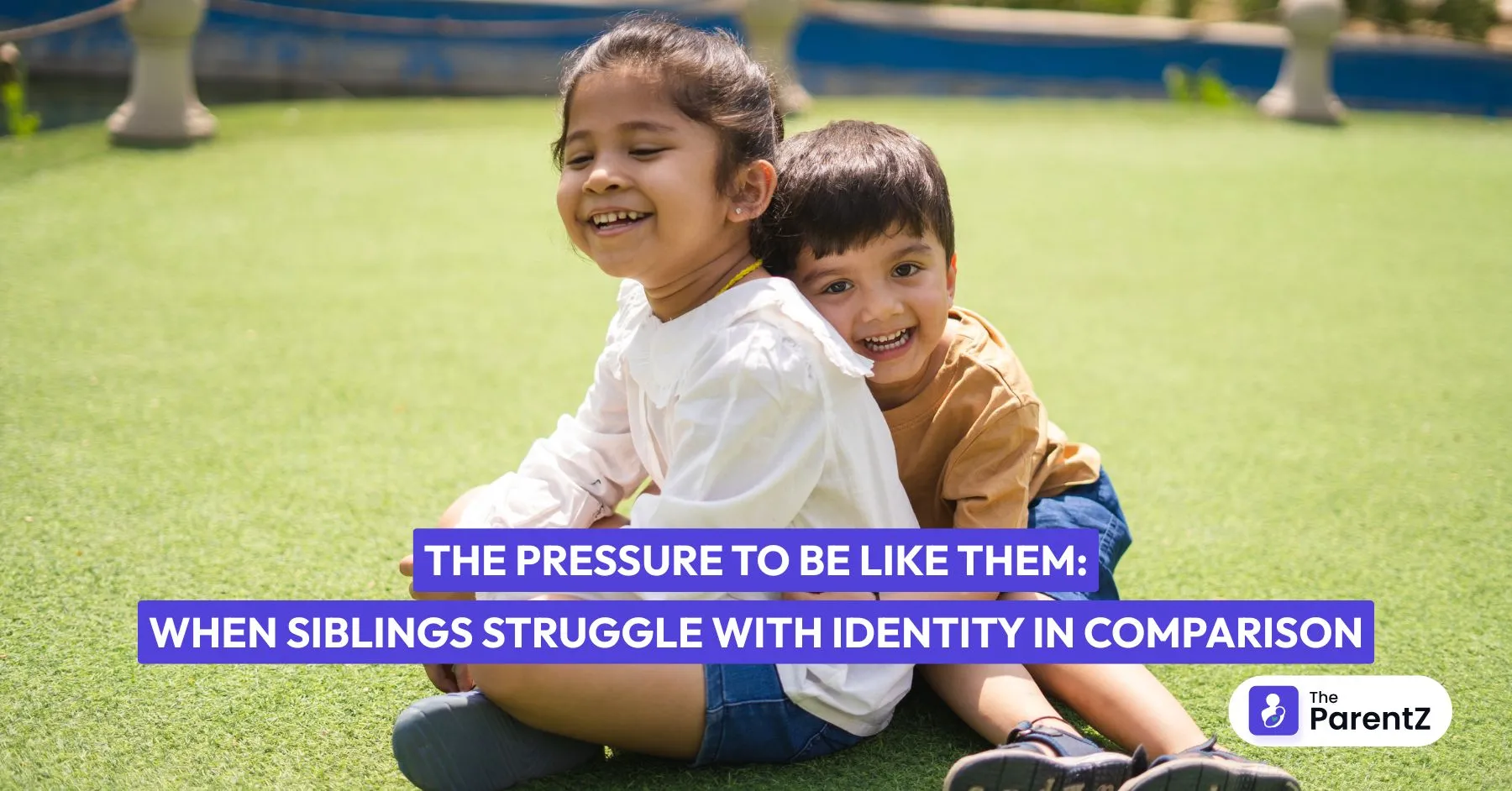Whether it's about grades, sports, personality, or popularity—sibling comparisons are a quiet but powerful pressure in many households. Phrases like “Why can’t you be more like your brother?” or “Your sister never did that” may seem harmless at first, but over time, they can chip away at a child’s confidence, uniqueness, and sense of self.
Sibling comparison, whether intentional or unintentional, can lead to identity struggles, emotional distance, and long-term self-esteem issues. Let’s explore why this happens, how it affects children, and what parents can do to help every child feel seen as their own person—not just someone’s sibling.
Why Do Sibling Comparisons Happen?
1. Parents Notice Differences Easily
It’s natural to notice contrasts between siblings—after all, children are born into the same home but are wired differently. One might be outgoing, while the other is quiet. One excels academically, the other in creative expression.
2. Family and Social Pressure
Extended family, neighbors, or teachers may reinforce labels:
- “She’s the smart one.”
- “He’s the athletic one.”
Without meaning harm, adults often create fixed roles for children within families.
3. Desire to Motivate
Sometimes, comparisons are used to inspire:
- “Look how neatly your brother finishes his homework!" But instead of motivating, this often leads to resentment, rivalry, or withdrawal.
How Comparison Affects a Child’s Identity
1. Self-Esteem Issues
Constant comparison makes children feel "less than," even if they have their own strengths. They begin to doubt their value unless it matches someone else’s achievements.
2. Fear of Disappointing
Children may live in quiet anxiety, fearing they’ll never live up to the standard set by a sibling. This can lead to performance pressure, dishonesty, or burnout.
3. Sibling Rivalry and Resentment
The favored sibling may feel guilty or isolated. The other may feel angry, competitive, or distanced from both the sibling and the parents.
4. Loss of Individual Identity
When a child is always seen in comparison, they may struggle to develop their own interests or voice. They begin to define themselves by what they are not.
What Children Really Need
Every child wants to feel:
- Seen: “You notice me for who I am.”
- Valued: “My efforts and choices matter.”
- Safe: “I don’t have to perform to be loved.”
Without these emotional needs being met, a child may act out, withdraw, or begin to internalize harmful beliefs.
How Parents Can Help Children Struggling With Comparison
1. Recognize Unique Strengths
Celebrate each child’s individuality. One may be empathetic, another curious, another resilient. Make these qualities part of family conversation.
Try saying: “I love how patient you were today with your little cousin.” “You think about things in a really creative way.”
2. Avoid Labels
Even positive labels can trap children into fixed roles—like “the smart one” or “the naughty one.”
Instead of: “You’re the responsible one, not like your brother.”
Say: “I appreciate how you helped out today. That was thoughtful.”
3. Encourage Self-Discovery
Support your child’s interests, even if they differ from the family norm.
- Enroll them in different classes or hobbies
- Let them choose their own clothes, books, or art style
- Encourage expression, not comparison
4. Model Acceptance
Children learn from what they see. Respect differences in your own relationships, friendships, and extended family. Be mindful of how you talk about success and value.
5. Hold Private Conversations About Struggles
If your child expresses feelings like “I’ll never be as good as him,” listen deeply.
Say: “I understand you feel that way. But your path is different—and just as important.” Avoid rushing to correct or cheerlead. Sit with the feeling. Then help them name their own values and goals.
When to Be Concerned
If a child consistently shows signs of:
- Withdrawal or silence
- Hostility toward siblings
- Perfectionism or fear of failure
- Decline in performance or behavior
It might be worth speaking to a child psychologist or school counselor. Emotional wounds from comparison can run deep and benefit from professional support.
Final Thoughts: See Each Child for Who They Are
Comparison is one of the easiest traps for families to fall into—and one of the most harmful. Every child deserves to feel valued, heard, and celebrated, not in contrast to someone else, but as themselves.
When parents take the time to see each child as an individual—with unique strengths, flaws, timelines, and dreams—they don’t just prevent sibling rivalry. They nurture self-worth, emotional security, and lifelong confidence.





Be the first one to comment on this story.